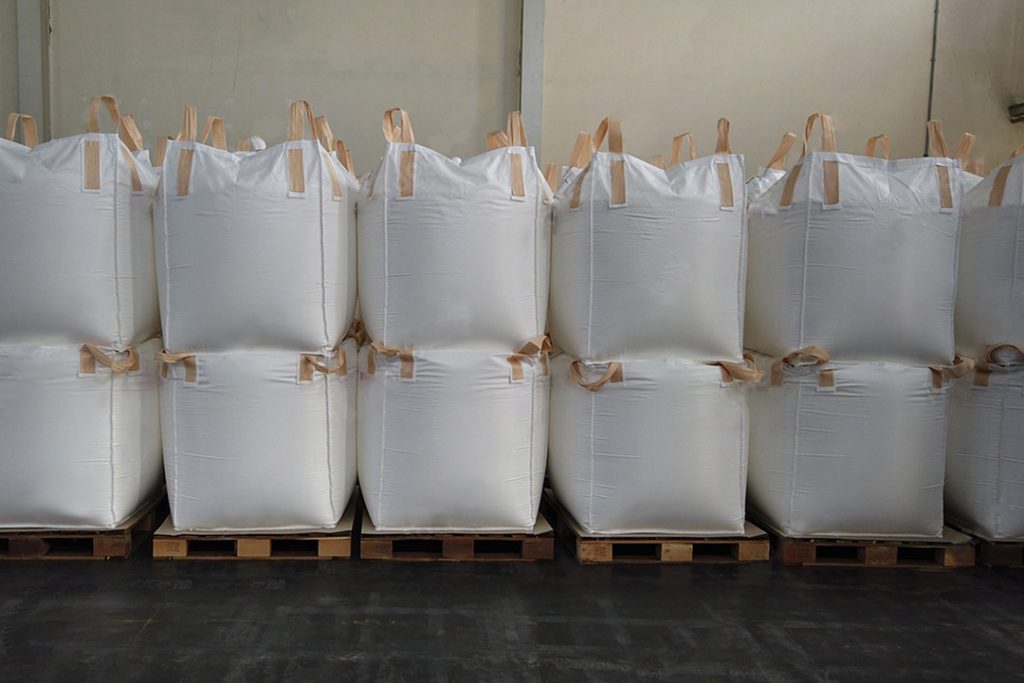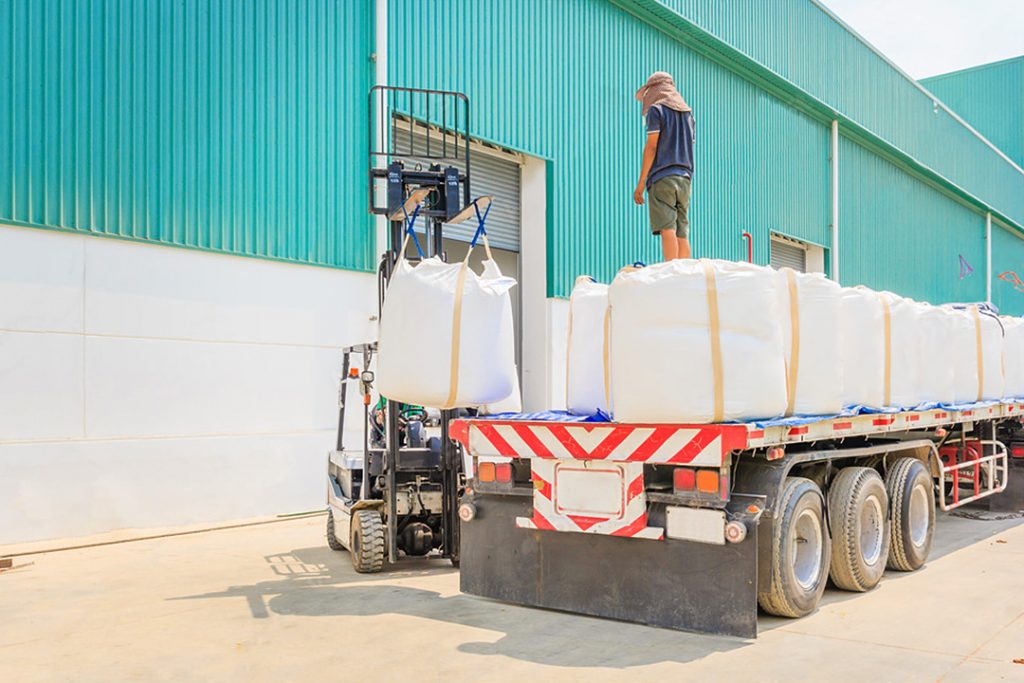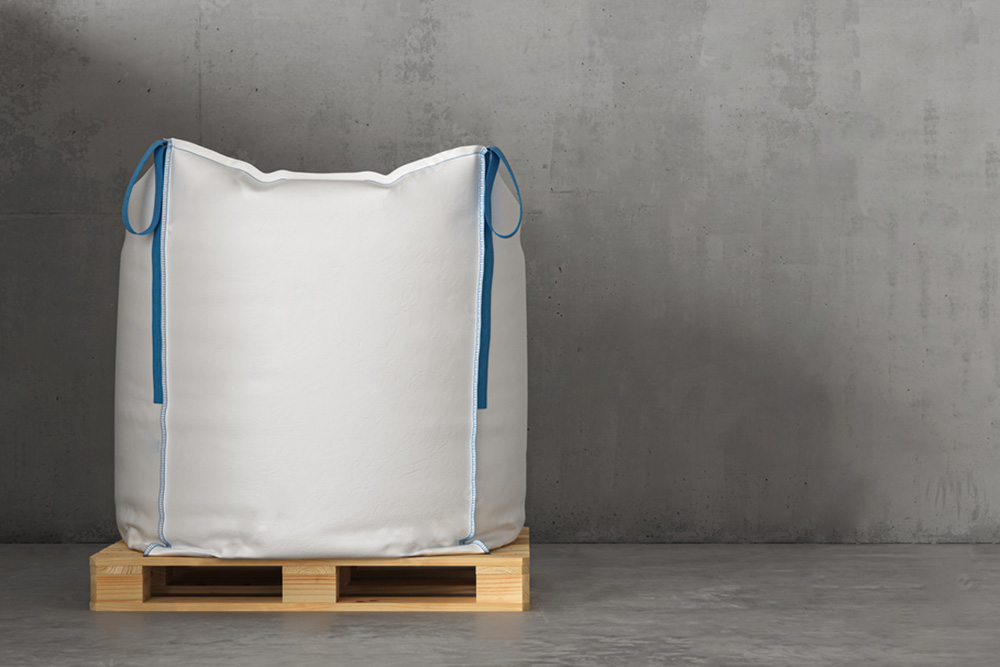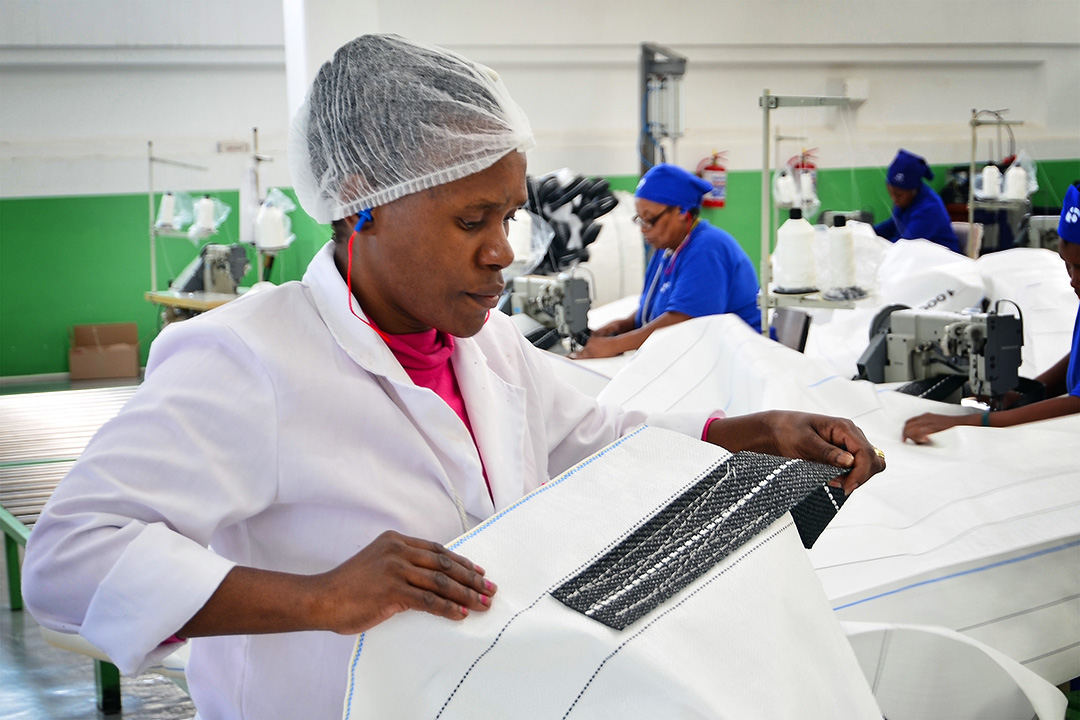Bulk bags are tough and reliable packaging products designed to store and transport large quantities of materials – sometimes up to two tonnes in one container. Dealing with such loads means that strict safety protocols need to be observed, especially when multi-trip bags are reused.
They’re made from woven tapes of polypropylene, which creates a flexible, durable and strong fabric. This is why bulk bags are lightweight and can carry immense loads. However, regular care and maintenance are crucial as they can extend the usable life of the containers and ensure that employees are not at risk when handling fully-loaded bulk bags.
Custom Bulk Bags is a leading manufacturer and supplier of FIBCs in South Africa. We produce up to 3.5 million bulk bags per year, all of which have a minimum safety factor rating of 5:1 and are manufactured in accordance with international regulations and standards. We encourage our customers to inspect and clean their bulk bags before reusing them to maintain their quality and safety standards.

Why clean and inspect bulk bags?
Bulk bags are designed to carry loads between 500kg and 2000kg, so inspection and cleanliness are fundamental to their structural integrity and performance over time. A clean bulk bag not only looks better but is safer to use and less likely to fail. Dirt and debris, whether on the inside or outside of the bag, can damage the woven fabric and create micro-tears in the tapes.
Inspecting this fabric closely before filling the bulk bag will allow you to find any signs of wear and tear or potential damage that could result in catastrophic failure of the bulk bag under load. This prevents financial losses associated with product wastage, damaged goods and injury to employees.

A guide to cleaning bulk bags
Before reusing multi-trip bulk bags, always ensure that they are clean and free from debris. Start by emptying the containers and shaking them upside down to dislodge any fine particles of debris, such as sand and dirt. Tap on the base panel of the bag to help with this process. You can also use a vacuum cleaner and soft brush to remove stubborn grit.
Next, wipe down the inside and outside of the bulk bags with a damp cloth and mild detergent to remove any stuck dirt or scuff marks. Be sure to rinse the detergent off with water to ensure that no soap remains. This will make it easier to inspect the woven fabric and see any signs of damage on the polypropylene tapes.
Dry the bulk bags to prevent mildew or mould from growing on or within the fabric and seams. The best way to do this is to air-dry the bags by hanging them up and allowing the air to circulate freely. Before cleaning your bulk bags, check with the supplier or manufacturer if they can be washed – if not, skip the washing step.

How to inspect a bulk bag properly
The purpose of an inspection is to look for any signs of damage that might compromise safety. You need to closely look at the quality of the fabric and look for any cuts, tears or punctures in the panels of the bulk bag. Also keep an eye out for discolouration or signs of UV damage to the fabric, which looks chalky or dusty.
Inspect the seams and stitching for any unravelling threads or holes in the seams. These areas can give way when placed under extreme loads. Similarly, look at the stitching along the lifting loops and straps. These elements need to be undamaged and intact.
Remember to check the top and bottom closures, if the bags are fitted with these elements. Check the openings and closures for signs of damage or malfunction. Lastly, inspect the overall shape of the bulk bags while they are being filled – they should maintain their shape without any bulging areas or sagging to one side. If the bulk bag does not look right, do not lift it.
Proper cleaning and inspection of bulk bags will ensure that you get your money’s worth from your investment. You can rest assured that they will be in good working condition and will not pose any hazards to your employees. By taking these steps, you can reuse your bulk bags multiple times before needing to replace them. For more information about our bulk bags, please contact us today.
___
Custom Bulk Bags is a leading South African manufacturer of woven polypropylene bags for various industries, such as mining, chemicals and food. We are able to produce over 3.5-million bulk bags per year, keeping our customers in stock at all times. Our bags adhere to the highest levels of quality as a result of our stringent in-house testing and quality control programmes.
Custom Bulk Bags holds ISO 9001 certification and we currently have a number of UN-certified designs. We are a Level 2 B-BBEE manufacturer and supplier and fall under the ownership structure of Deneb Investments Limited. For more information on our products, contact sales@custombulkbags.co.za. Follow us on Facebook for our latest news and industry insights.

